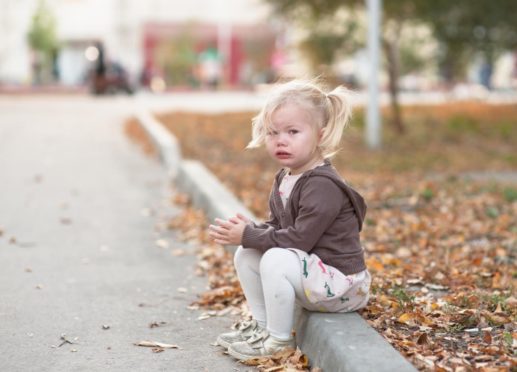We have never known a time before when we have had less control over our lives than during the pandemic.
But it also been been a time where it has brought a unique insight into what it is like to be a child. To live your every day life by restrictions.
And for us, as the grown-ups caring for children, to seize an opportunity to connect with the feelings that drive a child’s resistance to rules.
This thought struck me as my three-year-old sat down on the pavement and howled about his socks. I tried to convince him that they were as fine now as when we left the house. His protests became louder.
The journey to nursery was at a standstill. I took a very deep breath and got down to his height and looked into his eyes.
He was struggling with big feelings and needed my help putting them into words. I described what I saw, that he didn’t seem happy about going to nursery which led to a discussion about his sadness leaving his toys behind.
I realised I’d rushed him out the door, I’d not prepared him for any ending.
He lives his life having decisions made for him constantly; when we will leave for nursery, how we will get there, whether he will wear his coat and so on.
Feelings of uncertainty fuel powerlessness
Is it any wonder children have temper tantrums? I’m not suggesting we relinquish control – restrictions as with Covid-19 are there for a reason, it would be anarchy and carnage if children had control over how how many biscuits they could tuck into or when they head for bed.
Children thrive on structure and routine but they also grow easily frustrated if there is not a conscious effort to give them as much choice in their day as possible. This is why toast cut into triangles and not squares really is a big deal to them. They see broken bread. We see the ensuing meltdown.
We also see meaning in the passing of time and can look forward to when restrictions ease. Feelings of uncertainty fuel powerlessness. Children need milestones across a timespan to help them understand the concept of time.
Repeated wet walks to the park during lockdown doesn’t much help with this developmental leap.
Use the ‘when-then’ guide
How difficult it has been for us not knowing when we can see loved ones again. Now think of the child who misses their grandparents and struggles to know the meaning of time. The curse of the phrase ‘are we there yet?’ from the backseat is not just an irritation borne out of boredom.
That is why young children benefit from learning to sequence time using a ‘when-then’ guide – when you brush your teeth, then we will read your story.
Restrictions have led to us all having to cope with being told what to do, when we could do it and with whom we could do it. It is for the greater good, but it has led, as you will likely know, to strong feelings of frustration and at times perhaps anger.
Being told you can’t be with a loved one in hospital or in a care home comes to mind most of all. At times, it may not make sense to us when we know that psychological well-being is needed to aid physical recovery.
This feeling of impotence is what a child feels when rules don’t make sense to them. Some things we can’t negotiate on, like safety, but where possible let them learn through experience.
Seeing the world through their eyes, which I think we can do a little more clearly now, can help us feel more compassion and muster more patience when we are all managing a life with less control.
Dr Tracy McGlynn is the mother of two young boys and a clinical child psychologist who works for the NHS with families in the Highlands. She has written for the P&J previously.
To read more on our coverage of education, click here

